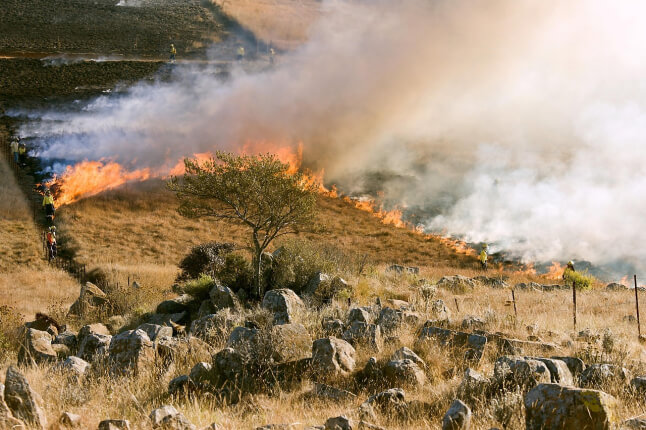News
The energy transition presents both a risk and an opportunity for insurers, according to Liberty Mutual representatives Elizabeth Geary, President of Insurance Solutions and Interim CUO; Lesley Harding, Global Head of Strategic Partnerships, Energy Transition; and Amin Khairallah, Senior Vice President and Risk Engineering Manager - US, LATAM & Caribbean.
The representatives spoke at a May 1 panel discussion hosted by the Harvard John A. Paulson School of Engineering and Applied Sciences (SEAS) and the area of Environmental Science and Engineering. The panel, part of the Global Energy Transition Talk series, focused on the critical role insurers play in enabling the large-scale deployment of new technologies essential for decarbonization. It was moderated by Nicola De Blasio of the Harvard-China Project on Energy, Economy, and Environment.
Role of Insurers in the Energy and Climate Transition
Geary highlighted the role insurers play, as underwriters and investors, in the global energy and climate transition, emphasizing the need for insurance companies to continue building their profile in this space. While today’s focus is on risk financing and pricing, she acknowledged insurers' broader responsibility — especially amid rising climate risks, growing global energy demand, and the accelerating use of AI and data centers.
At Liberty Mutual, the energy transition is seen as both a risk and an opportunity. Geary highlighted how the company supports customers on their sustainability journeys, including the shift from fossil fuels to new energy transition technologies, such as solar, wind, hydro, biofuels, biomass as well as carbon capture.
She also outlined key challenges, including inefficiencies in insurance mechanisms, capital constraints, limited reinsurance availability, and scalability. Geary stressed the importance of diversification and staying attuned to how policy incentives shape emerging technologies.
Role of Engineers in Insurance Companies
Khairallah outlined the role engineers play in insurance, including the core responsibility to assess risks, such as property damage, equipment breakdown, and business interruption. As a risk engineer, new technologies are evaluated by their readiness level — whether they are proven or first-of-a-kind — since insurers are typically cautious about underwriting first-of-a-kind innovations or projects for which enabling infrastructure is not available. Engineers also act as translators, helping underwriters and clients navigate complex technical risks and inform insurance decisions.
“The energy transition is underway,” Khairallah emphasized. “While there is often hesitation to back the world’s first or largest technologies, as risk engineers, our role is to evaluate these emerging solutions and help our underwriting teams gain confidence in the risks they pose.”
The energy transition is underway. While there is often hesitation to back the world’s first or largest technologies, as risk engineers, our role is to evaluate these emerging solutions and help our underwriting teams gain confidence in the risks they pose.
Constraints on Underwriting Emerging Technologies
Insurers assess risk using detailed client-provided data — often submitted through brokers — including economic modeling and technology performance metrics. Underwriters also evaluate how risks are allocated in contracts, aiming to ensure responsibilities are assigned to parties capable of managing them effectively.
“The primary constraint for insurers is scale,” noted Geary. “Underwriters need confidence that if a product is misjudged, there’s room to course-correct without incurring major losses.” Capital requirements vary depending on the technology and its risk profile. Nuclear energy, for instance, presents unique challenges: it is largely excluded from reinsurance coverage, and insurers must maintain significant capital reserves due to strict regulatory demands and the long-tail nature of potential claims.
The Energy Transition’s Future
Insurers are seeing growing demand for climate-related projects. In 2022, Liberty Mutual established the Liberty Mutual Climate Transition Center to share proprietary research, data and insights and encourage cross-industry partnerships to advance the collective understanding of climate-related risks, impacts, and resilience. .
“As technology advances and our understanding of climate risks deepens, insurance coverage must evolve accordingly,” said Geary.
Topics: Climate
Cutting-edge science delivered direct to your inbox.
Join the Harvard SEAS mailing list.


